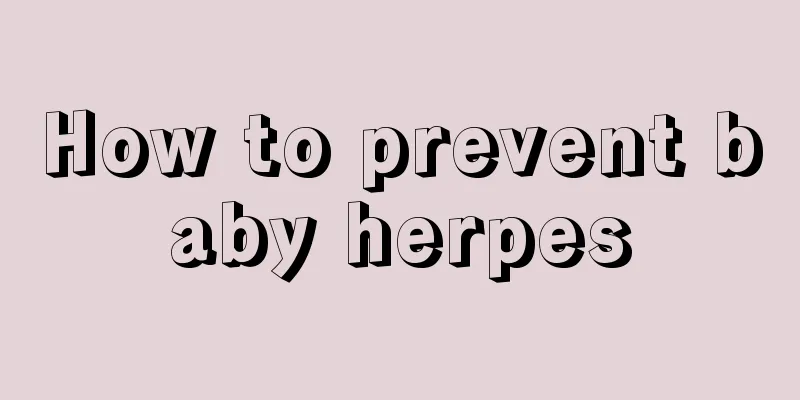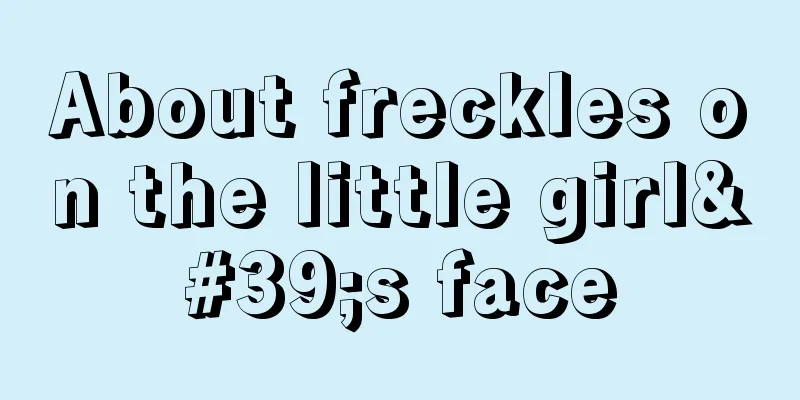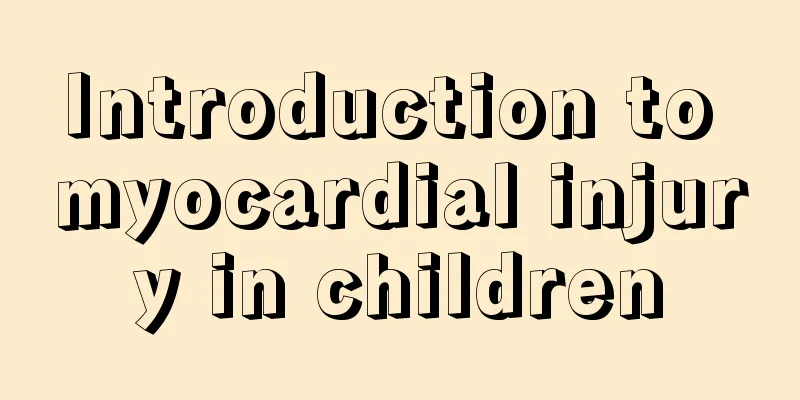What to do if your newborn baby has nasal mucus

|
Many mothers will find boogers in their babies’ noses when taking care of their newborns. They always feel that the babies have symptoms such as difficulty breathing, which always makes us feel that the babies are very uncomfortable and makes parents particularly worried. They are afraid that the babies will suffocate due to the boogers in their noses, which will cause nasal congestion and affect the baby’s health. So, how should we deal with such symptoms since the baby is relatively young? Let’s learn about what to do if a newborn has boogers in his nose. What to do if your newborn baby has nasal mucus If your baby has too much nasal mucus, mild cases will make the baby uncomfortable, and severe cases will easily cause the baby to have difficulty breathing. Parents should find ways to clean the baby's nasal mucus in time, but because the baby's nasal mucosa is delicate, it must be removed with caution. Let’s talk about the specific method below. 1. If the baby's nasal mucus is hard, drop a few drops of sesame oil into the nose before cleaning it. This will lubricate the mucus and prevent it from sticking to the nose hair, so as to avoid pulling out the baby's nose hair when picking the nose, causing pain. 2. You can also apply a hot towel (not too hot to touch) to the baby's nose to soften the baby's nasal mucus. Repeat the hot compress several times, and it will be easier to clean without hurting the baby. 3. Then use a thin cotton swab to gently pick out the lubricated booger. Be careful not to insert too long into the baby's nostrils, which will cause discomfort to the baby and make the baby cry. If the booger is accidentally poked into the nasal cavity, do not dig it out. Wait for the booger to slowly slide out before cleaning it. 4. If the baby's nasal mucus is sticky, you can roll the toilet paper into a long and thin roll, slowly stuff it into the baby's nose, and gently turn it a few times. The baby's nasal mucus will stick to the toilet paper and be brought out. 5. You can also use hair to induce your baby to sneeze. For sticky nasal mucus, you can usually spray it out of the nose and then wipe it off with paper. This is safer and avoids the danger of the cotton swab being put into the baby's nose. After all, babies are prone to crying and resisting. 6. A safer method is to use a nasal aspirator, which is generally sold in maternal and child supply stores. When using it, pinch the back of the nasal aspirator according to the location and size of the booger, and the booger will be sucked out when you let go. But it won’t work on hard and dry boogers, so be careful not to hurt your baby when using it. 7. In addition, try to pick your baby's nose gently when he is asleep. This will prevent him from crying and is safer. The above is an introduction to what to do if a newborn has nasal mucus. After understanding it, I hope that parents will be particularly careful when dealing with nasal mucus for their baby, because the skin of newborns is relatively delicate and can be injured if you are not careful. In order to avoid causing damage to the child's nose, if you feel you can't handle it, you should consult a doctor in time. |
<<: What to do if your child has loose stools
>>: What is the treatment for mycoplasma infection in children?
Recommend
What is the difference between developmental delay and autism?
Autism is a social disorder that causes great dif...
What are the reasons why children don't grow taller?
I believe that having a tall figure is the dream ...
Child coughs and wheezing in the lungs
Children's lungs are very fragile when they a...
Children's growth and development indicators
Ten months of pregnancy and one day of delivery e...
Can ADHD in children be cured?
A person's life basically ends when he or she...
When is the best time to treat neonatal dacryocystitis?
Neonatal dacryocystitis is a common disease in ne...
Children have a fever and fart a lot and smell bad
Many children will feel that they fart a lot and ...
What should I do if my child’s skin is broken and becomes inflamed? Should he take anti-inflammatory drugs?
Children are particularly naughty, so some of the...
What is the reason for children's fever and cold hands and feet
No matter what the circumstances, the most concer...
What should I do if my child has asymmetrical eyes?
Many parents will find that their baby's eyes...
What to do if your child has a stuffy nose and can't sleep well
In fact, children experience nasal congestion mor...
Six-month-old baby development standard
In fact, in daily life, we must be very careful t...
What to do if your child has severe constipation
Many parents are very distressed because their ch...
What is the cause of the child's stomach gurgling and farting?
Given that children's digestive abilities are...
What causes acrodermatitis in children?
Sometimes, some small red spots appear on childre...









